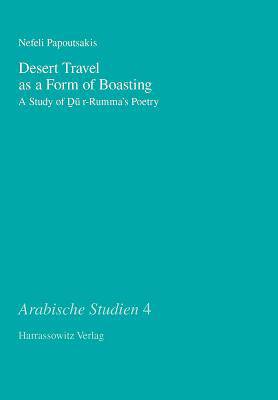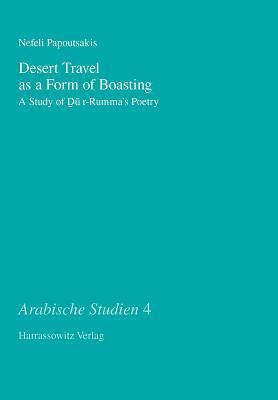
Bedankt voor het vertrouwen het afgelopen jaar! Om jou te bedanken bieden we GRATIS verzending (in België) aan op alles gedurende de hele maand januari.
- Afhalen na 1 uur in een winkel met voorraad
- In januari gratis thuislevering in België
- Ruim aanbod met 7 miljoen producten
Bedankt voor het vertrouwen het afgelopen jaar! Om jou te bedanken bieden we GRATIS verzending (in België) aan op alles gedurende de hele maand januari.
- Afhalen na 1 uur in een winkel met voorraad
- In januari gratis thuislevering in België
- Ruim aanbod met 7 miljoen producten
Zoeken
Desert Travel as a Form of Boasting
A Study of Du R-Rumma's Poetry
Nefeli Papoutsakis
Paperback | Engels
€ 115,45
+ 230 punten
Omschrijving
Boasting about one's travels through the desert was a very common topic of self-praise in early Arabic poetry (ca. 500-750). Desert crossing would attest to a man's character, providing evidence of his valour, stamina, industriousness and ambition. The book focuses on desert travel as a self-praise theme in early Arabic poetry and especially in the work of the Umayyad poet Dur-Rumma (ca. 695-735), one of the last great exponents of the Bedouin poetic tradition. It discusses the various motifs associated with desert travel in Dur-Rumma and traces their antecedents in the work of earlier poets. By analyzing the diachronic development of the travel theme and evaluating its place within the poem as a whole, it challenges the widespread view of the Arabic ode (qasida) as a tripartite composition and contributes to a better understanding of early Arabic poetics. For despite the fact that desert travel was a central theme of early poetry, it has never been studied in detail and its purport as a theme of self-praise has not been generally recognized.
Specificaties
Betrokkenen
- Auteur(s):
- Uitgeverij:
Inhoud
- Aantal bladzijden:
- 169
- Taal:
- Engels
Eigenschappen
- Productcode (EAN):
- 9783447061124
- Verschijningsdatum:
- 1/12/2009
- Uitvoering:
- Paperback
- Formaat:
- Trade paperback (VS)
- Afmetingen:
- 168 mm x 236 mm
- Gewicht:
- 317 g

Alleen bij Standaard Boekhandel
+ 230 punten op je klantenkaart van Standaard Boekhandel
Beoordelingen
We publiceren alleen reviews die voldoen aan de voorwaarden voor reviews. Bekijk onze voorwaarden voor reviews.









